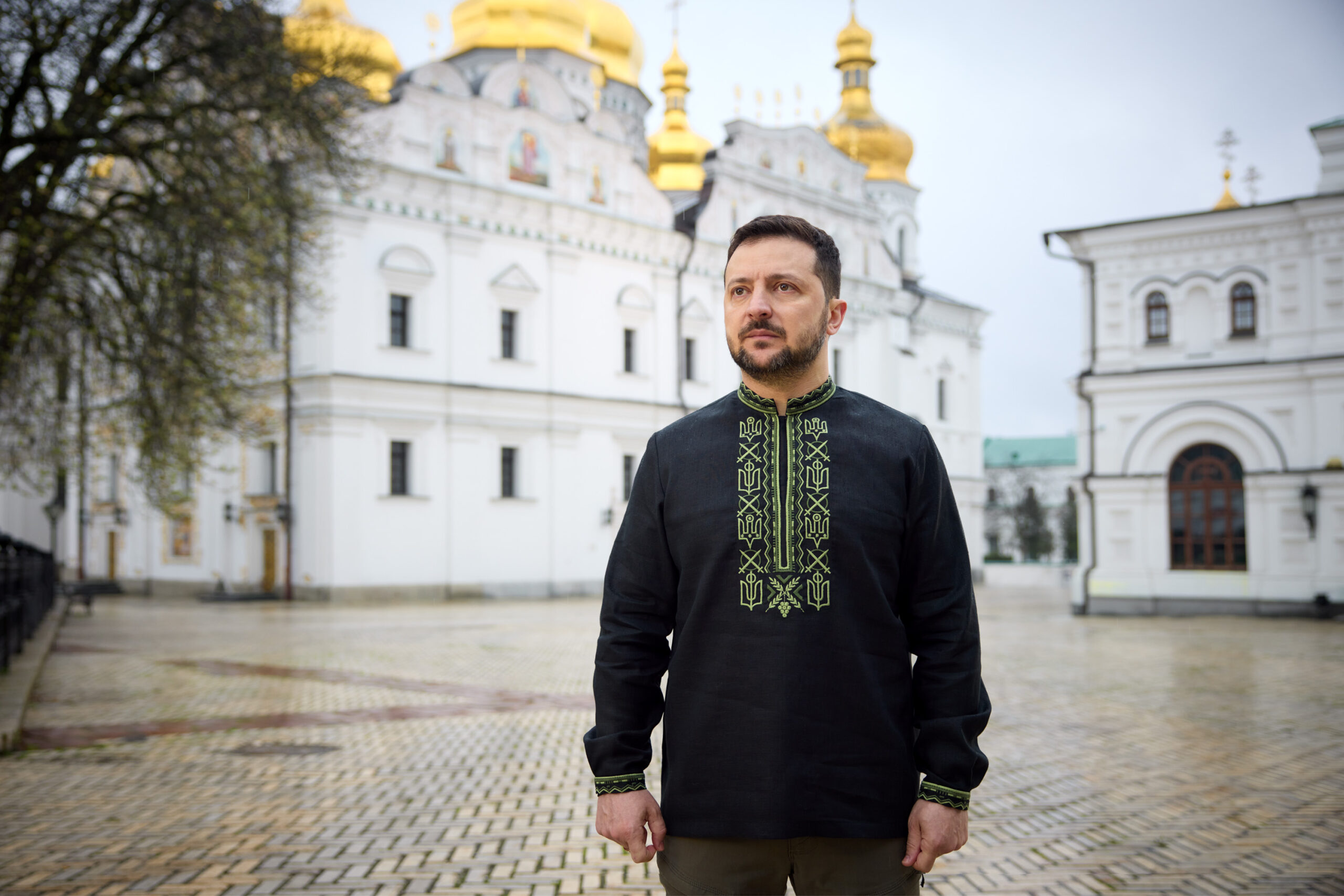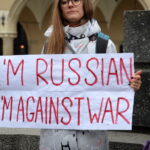
I attended a really excellent conference this week organised by the Stockholm Institute of Transition Economics (SITE) and the Stockholm Centre for East European Studies (SCEEUS) on Private Sector Engagement in Ukraine’s Recovery and Reconstruction in cooperation with the Royal Swedish Society of Engineers, the Swedish Ministry of Foreign Affairs, and the Confederation of Swedish Enterprise. And, unsurprisingly, it took place in Stockholm.
It provided a really excellent format, and stage for discussion and was well attended by the Western and Ukrainian official and private sector.
The aim was to dovetail into the looming Ukraine Reconstruction Conference in London on June 21-22, 2023, a bigger version of the Lugano conference last year.
I provided an input paper for the conference about how I view prospects for private sector involvement in Ukraine reconstruction with some ideas on preconditions therein.
I have written separately of my concerns as to all the official sector focus on the private sector doing the heavy lifting in Ukraine’s recovery and reconstruction. But actually this conference helped further cement my views. I include herein a summary of my own views expressed in a panel therein.
I think I need to start by setting the stage a bit – the warm up act.
First, Ukraine’s victory in this war and then successful recovery and reconstruction is the most important strategic and development project the combined West has faced since the fall of communism in Emerging Europe in 1989/91.
And, as I have long argued, Ukraine is fighting in defence of Western values and actually defending Europe from further Russian aggression and expansion. Ukraine is our first line of defence. If Russia wins then the rest of Europe’s security is at risk. Putin will not stop in Ukraine. History tells us that the appetite of fascist dictators is insatiable. But even if Ukraine succeeds in stopping Russia’s advance and pushes its troops back into Russia, the threat to Ukraine and the West will remain. We need to rebuild Ukraine to a state where it is economically strong enough to sustain its defence – and with it our first line of defence.
So this project of enabling Ukraine to win the war (they will) and the peace (less sure) is a strategic priority and, importantly and now overlooked, a public good for the West.
However, unlike 1989/1991 when we had the tailwinds of the peace dividend of slaying the Soviet dragon and collapsing the Warsaw Pact – Europe’s security looked pretty secure back then with the US emerging as the world’s single remaining Superpower – we face headwinds this time of an aggressive, war mongering Russia, and doubts about the staying power of the Western alliance with obvious concern about what a Trump win in US elections in 2024 would mean therein.
Time is not necessarily on our side this time around, while it felt it was in 1989/91 with the euphoria of the fall of the Berlin Wall, “Russians are really just like us”.
Second, I can get myself super bullish about Ukraine’s recovery/reconstruction story – low base, huge reconstruction rebuild effort, big continued defence spend, and then all the innovation and resilience shown in the war. Add in the EU accession anchor and “boom” times call, Ukraine could be the most exciting recovery story since the end of communism in 1989/91. I have faith because of what Ukrainians have done in this war – Ukraine’s State of Israel moment – where they have faced down the odds and beaten back a global superpower. They have achieved that with shear spirit, determination, bravery and innovation. They are an inspiration to us all. And that’s why I am ultimately optimistic on the outlook for Ukraine.
Third, the scale of the problem, or challenge, should not be underestimated. Alongside thousands of Ukrainians killed, maimed, kidnapped and millions forced to migrate the economic cost in terms of lost output and productive potential, and destroyed assets most likely runs into the hundreds of billions – perhaps as much as a trillion – dollars. Let’s assume half that, which would still be three times Ukrainian pre war GDP. Assuming a ten year rebuild that’s a $50 billion annual rebuild cost – that might be absorbable given pre/post war GDP of $125/180bn.
The challenge does not end there though.
One hopes that all the pre-war corruption/rule of law problems that beset development can be resolved – perhaps the war will give new political capital to the anti graft fighting NGOs and they can harness likely limited (zero) public tolerance for the old corrupt/oligarchic/state capture ways.
But add to this the challenge of enticing back and then resettling the 8-10 million Ukrainians who migrated abroad due to war. And then the likely economic, social and political challenges of looking after perhaps as many as 1 million demobbed troops (war heroes) – look at the experience there of post Yugoslav war Croatia with the heavy weight of war pensions that has taken decades to resolve. As an aside I would give them all parcels of the millions of hectares of land currently still held in state ownership via some kind of lottery as a thank you for their war effort.
That’s the stage set.
The message though now from Western governments is that Ukraine recovery and reconstruction is a huge priority (we promise) but that the heavy lifting of funding it will be done by the private sector.
I get the above in terms of cost to the West of funding Ukraine through the war has been very significant – perhaps $100bn to date in fiscal and military spend. Our governments are perhaps just stating the obvious that, in an age of populism, they doubt there is the political will at home (or don’t want to risk testing it) to commit to another $50 billion pa spend on Ukraine over the next decade.
It’s political reality, perhaps – see reference to Trump as above.
But my problem with the above is that it’s just not realistic to assume that, in the absence of appetite to pay by the Western taxpayer, the private sector will just stump up $50bn a year for Ukraine reconstruction, at least not in the early years which are actually the mission critical years given the time dimension noted above.
I doubt the private sector will stump up ten, if not fifty billion dollars of financing because of Ukraine’s prior track record around rule of law and corruption. Investors likely will adopt an incremental approach – seeing is believing. Some concern over war risk can be mitigated thru the official sector providing war insurance, et al. But I think that will entice low single digit billions in, it won’t touch the sides.
I think it would help if the EU give Ukraine a real and credible EU accession perspective, which for business needs a target date for entry. Warm words from mealy mouthed politicians who might not be long in office long counts for very little to business. Look at Turkey, which is a candidate member state, began negotiations over aquis, but, with no date given for entry accession, talks are stalled. Notable there that when there was peak accession optimism in 2007/08 Turkey got a record inflow of FDI of $28bn, but now it has sagged to $5-6bn pa. But even for the EU accession stars – the likes of Poland, Hungary et al, which had a firm date of accession – 2004, given in 1994 at the Copenhagen summit – FDI flows have totalled only 2-3% of GDP pa (if that), which would be $3-4bn pa in the Ukrainian GDP context. And note that before the war, Ukraine was only attracting 0.5-1% of GDP in annual FDI flows – and, of that, mostly offshore Ukrainian inflows from Cyprus, et al.
I have to say this but always find it somewhat ironic that these reconstruction style conferences are typically filled with panels of politicians, and official “public sector” guys (mostly men) telling us what the private sector needs to do. I fear that the London Ukraine Recovery Conference will be similar. Instead of a 3-1 public-private roll call can we have a 1-3 please? If we get that, then we might have a chance.
Maybe a bit more honesty would be good here. How about “ we can’t pay for it, it’s over to you guys!”
Actually I am fine with the logic that the political appetite in the West is not there to commit $50 billion a year to Ukraine for the next decade. But telling us all the private sector will do it is just misleading/ disingenuous. It’s fantasy. Tell me a post war reconstruction story/example where the private sector led the way, and did the heavy lifting?
If Western taxpayers (plan A) are not willing to pay, the private sector (Plan B) unlikely to stump up enough money in time (needed up front given the strategic imperative of making Ukraine economically strong quickly) then we need to accept that Ukrainian reconstruction will fail unless we come up with a Plan C.
And the failure to fund Ukraine’s reconstruction means likely economic, social and political instability in Ukraine, a country which is now the number one military power in Europe (plus/minus Russia) – and all the above would mean a Russia win ultimately and the prospects of millions more Ukrainian migrants in Europe. And it means the West will need to massively increase defence spending to face up to the risks from a newly confident and ever aggressive Russia.
So what would a Plan C look like?
Well Plan C could just be a reworked Plan A. Let’s be honest with Western taxpayers and say defending and rebuilding Ukraine is a public good, the private sector won’t get involved soon enough, we cannot trust the private sector to give it the right priority to deliver on time, and that we are going to have to pay for it ourselves via higher taxes – but it’s worth it. Honesty! Well $50bn a year spread our over $40 trillion plus annual Western GDP is what, less than 0.1% of combined GDP? That’s like a 5 basis point increase in the basic tax rate. Seems a cheap investment for our security.
I get it though that I just don’t see the political appetite to get tax payers to pay and once the war ends, and Ukraine is off our TV screens, then other priorities will compete with Ukraine for our tax dollars, or pounds in my case.
A better plan C for me would be use of the $400 billion in frozen Russian assets which are now held in Western jurisdictions.
From a philosophical, moral basis, Russia should pay – and indeed why should Ukraine or Western tax payers pay for Russian damage, genocide and war crimes done to Ukraine? Russia is not a poor country – per capita GDP five times that of Ukraine, $600bn sovereign assets, low debt ratio (<20% of GDP – could borrow to fund reparations to Ukraine) and $250bn in annual energy export earnings.
I get all the arguments about the legal basis for the transfer not being in place and any action before they are undermines perceptions around the rule of law in the West. But unless laws are changed to facilitate this, the money will not be available for Ukraine reconstruction. Ukraine will not rebuild – see risks above.
So here it is kind of needs must – use Western tax dollars to fund Ukraine reconstruction or change the laws (ASAP) to facilitate the transfer of frozen Russian assets to Ukraine. But please get a move on, and don’t give us bull that the private sector is the answer to all the problems – this is a public good problem, the private sector cannot be expected to step up enough to the plate here given all the risks. Saying anything else is just being misleading – and it’s not understanding the continuing threat from Russia and the real imperative of getting Ukrainian reconstruction done ASAP as a public good.
Now on frozen Russian assets – see my various solutions in papers on my substack blog. In brief though to get around the Russian ownership issue Ukraine could issue Restitution Bonds to the value of $400bn. We decide to use Russian frozen assets to buy these – Russia still “owns” these and their value stays at par. We are not attacking or undermining Russian property rights, yet. Ukraine might even pay a coupon. It’s as if they were invested in US Treasuries. Whether Ukraine opts to pay back – or restructure – could depend on the state of peace talks and future negotiations over reparations. But Ukraine gets the cash now for rebuilding and defending itself – disbursement could obviously be staggered. And I have argued separately that all this needs to be managed by a new Ukraine Reconstruction institution – a sovereign wealth fund like entity, which I have termed the Ukrainian Agency for Reconstruction and Accession (to the EU) or AURA.
I would ask is the issue of using frozen Russian assets for Ukraine’s reconstruction on the London Ukraine Recovery Conference agenda? If not, why not? And will there be discussion of the right institutional setting for Ukraine reconstruction? If not, why not? These are kind of the big issues for me, not how to get the private sector involved. That’s the icing on the cake if it happens.
And if these issues are not on the agenda I would question our governments’ real understanding of the challenges here. Guys like me and the Russia/Ukraine crew at Chatham House have been warning about the strategic threat from Russia for a decade, and have largely been ignored – I even predicted Russia’s invasion as far back as 2015. This is the most serious threat to Western Liberal Market Democracy since the end of the Cold War, perhaps WW2. Putin has said he is at war with the West. We need to wake up to that and respond accordingly – war/near war footing. Needs must. Our front line is in Ukraine. We need to do whatever it takes to fund Ukraine’s reconstruction and in war’s extraordinary measures happen, it’s understandable.
The idea that ensuring military victory of Ukraine and its successful reconstruction is a strategic security priority to the West also should necessitate the idea that the reconstruction effort cannot be led by IFIs/MDBs with international shareholders (many not in the Western alliance), leadership and staff. Their priorities and interests simply might not align with those of Ukraine and the Western alliance. Ukraine’s reconstruction is now a national security issue for the West. Others can surely join but they have to buy into the vision.
This is a reprint of a Timothy Ash article with his permission to republish.





